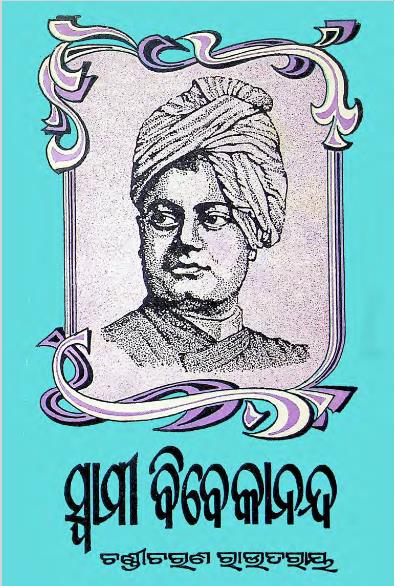Swami Vivekananda, born as Narendranath Datta on January 12, 1863, in Kolkata, is a name synonymous with spiritual awakening and the revival of Hindu philosophy. His life and teachings have inspired millions across the globe, transcending cultural and religious boundaries. In the Odia biography authored by Chandicharan Rautray and published in 1997, we delve deeper into the profound impact of this illustrious figure and the tenets of his philosophy.
From his formative years, Vivekananda exhibited deep spiritual inclination, often pondering over the nature of truth and existence. His encounter with the mystic Ramakrishna Paramahamsa in 1881 proved to be a pivotal moment in his life. Under Ramakrishna’s guidance, he experienced a transformation that propelled him towards his spiritual calling. The bond between mentor and disciple was profound and laid the foundation for Vivekananda’s life’s mission.
Vivekananda’s primary philosophy revolved around the concept of ‘Daridra Narayan’ (the poor as the embodiment of God), emphasizing the importance of selfless service to humanity. He believed in the divine potential of every individual and advocated for the realization of one’s true self through education, service, and the pursuit of knowledge. His famous proclamation at the Parliament of Religions in Chicago in 1893 left an indelible mark on the global stage, introducing the West to the rich spiritual heritage of India and promoting an inclusive vision of spirituality.
One of the central aspects of Vivekananda’s teachings is the emphasis on a harmony of science and spirituality. He championed the idea that true progress necessitates an alignment of material advancement with spiritual growth. As Rautray illustrates in his biography, Vivekananda’s profound insights on the relationship between the two continue to resonate even in today’s fast-paced world.
In 1897, after his return from the West, Vivekananda founded the Ramakrishna Mission, a philanthropic organization aimed at promoting social welfare and spiritual development. The Mission serves as a platform for educational and humanitarian efforts, bridging the gap between spirituality and social responsibility. Through various initiatives, including schools, hospitals, and rural development programs, the Ramakrishna Mission embodies Vivekananda’s vision of ‘service to man as service to God’.
Rautray’s biography captures the ethos of Vivekananda’s teachings, particularly his belief in the strength of character and the potential for individual transformation. His thoughts on practical Vedanta emphasize that spirituality is not merely a theoretical ideal but should be expressed through action in everyday life. This aligns with his vision of India’s renaissance, urging the youth to cultivate inner strength and embrace their cultural heritage.
Moreover, Vivekananda’s emphasis on education as a catalyst for empowerment is particularly relevant in contemporary society. He advocated for a holistic educational approach that nurtures both intellect and spirituality, encouraging individuals to think critically and act compassionately.
In conclusion, Swami Vivekananda remains a towering figure in Indian spirituality and philosophy. Chandicharan Rautray’s biography encapsulates the essence of his teachings, urging readers to reflect on the deeper meanings of life and the importance of service to humanity. As we navigate the complexities of modern life, Vivekananda’s timeless wisdom continues to guide us toward a path of self-realization and social consciousness, making him a true luminary of our age.
Books Info
| Books name | Swami Bibekanand/ସ୍ୱାମୀ ବିବେକାନନ୍ଦ |
| Author | Chandicharan Rautray |
| No Of pages | 53 |
| Publisher | Sri chamdi Charan Routray |
| Publication | 1997 |
| Printed At | Prasanti Printer |
| Distributor | NA |

